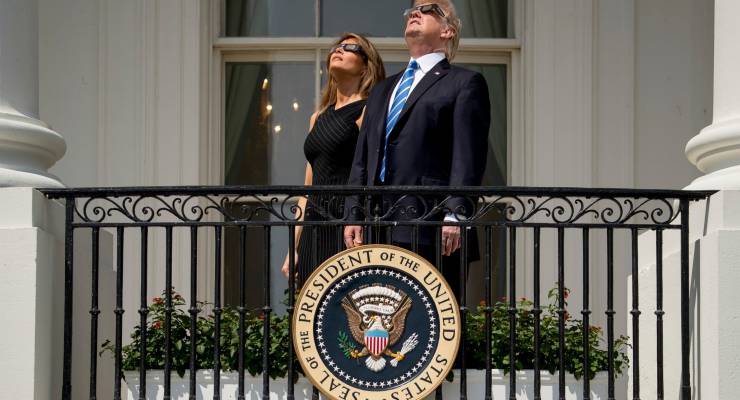
Just as we were writing the obituary of access journalism, along comes an old-fashioned fly on the wall blockbuster of the genre, Fire and Fury, on the Trump presidency.
“Access journalism” is journalism that relies on the special privilege of talking to public figures to report what they (presumably) think either on or off the record. It’s the journalist as the public’s ear on power. It’s the justification for the press gallery and, at its worst, it results in the “sources say” of the omniscient journalistic insider. In Australia, it’s produced most of the outstanding political books, ever since Warren Denning’s 1930s classic, Caucus Crisis.
Now, this style of journalism ideal is under pressure from a combination of changed media management strategies, social media and fragmenting audiences.
The privilege of access depends on political insiders talking to you, despite the inherent question mark over the reliability of what people say — particularly when they say it off the record or not for attribution — rather than what they actually do.
Even relying on contemporaneous notes, do the written quotes capture what they actually meant? Or are the quotes adjusted to fit the narrative, either by the speaker or the listener?
The narrative of Fire and Fury — a president out of his depth — has the Trump camp claiming “fake news!” Response to the book by journalists has been “It may be right. But is it true?” The New York Times’ Washington insider Maggie Haberman, who has herself been attacked for access journalism — including by Wolff –challenged the facts of Wolff’s account, while conceding the narrative.
This is the difference between “journalism” and “writing”. For most journalists, it’s more important to get the foundational facts right than the narrative. “Truthiness” is a joke, not an aspiration.
In his book, for example, Wolff quotes a Trump real estate friend, Thomas Barrack, as saying of Trump: “He’s not only crazy, He’s stupid.” However, Haberman responded to this, tweeting: “Barrack said he spoke to Wolffe (sic) once, says he never said the quote attributed to him to Wolffe or anyone..’Totally false,’ Barrack said by phone just now.”
In the absence of what we used to call documentary evidence (and now, “receipts”), it’s hard to know what to make of this ‘he said, she said’. How much of the criticism is because Wolff is trampling on the political media’s turf? He’s an insider alright — but from New York, not Washington.
Wolff has tabled some receipts. The book opens with a dinner party conversation in “a Greenwich Village townhouse” between Roger Ailes and Steve Bannon, discussing Trump’s limitations, his family, and cabinet choices. How did Wolff know this, journalists demanded? Turns out it was Wolff’s own townhouse.
Wolff is in a different place to most insiders. Journalists rely on access day after day. There’s a risk of punches being pulled, of shaping the narrative to suit the source, to avoid losing that access.
In the days of finite media this may not have mattered. There was only one Laurie Oakes and if you wanted to reach the Channel Nine audience, you had to work through him, however roughly you might have felt he’d handled you in the past.
For Wolff, that’s not a problem: he’s writing a one-off book and can afford to burn everyone.
Those minders and press secretaries who now stand between journalists and decision-makers have undermined access. The former privilege of talking to senior politicians has been replaced by the privilege of getting talking points direct from a staffer rather than reading them on a publicly available website.
The compromises of access journalism were clearer in celebrity reporting. A finite, but competitive, market kept a fine tension between a publisher not risking alienating a celebrity whose future wedding photos they might want and a celebrity not wanting to get the media off-side so that they became a ‘bad boy/girl’ punching bag.
Now, celebrities will use their own social media accounts (usually with ma wider readership than most magazines) to manage their image. The media are left with the same access as anyone else with an Instagram account.
The celebrity-president Trump has used Twitter to bypass the insiders. After the initial experiment of Kevin Rudd, who is the Australian politician who can do the same?








Crikey is committed to hosting lively discussions. Help us keep the conversation useful, interesting and welcoming. We aim to publish comments quickly in the interest of promoting robust conversation, but we’re a small team and we deploy filters to protect against legal risk. Occasionally your comment may be held up while we review, but we’re working as fast as we can to keep the conversation rolling.
The Crikey comment section is members-only content. Please subscribe to leave a comment.
The Crikey comment section is members-only content. Please login to leave a comment.